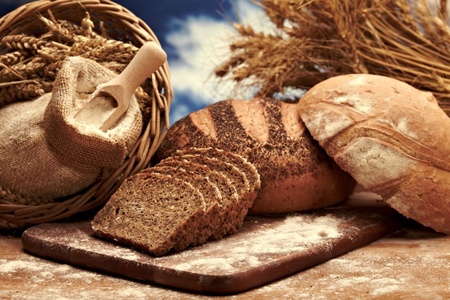Is breakfast really an important meal of the day?

2016-05-09
Did you eat breakfast this morning? I really believe that it is the most important meal of the day and I will explain my thoughts. I welcome your comments and share breakfast ideas with me on Twitter @Dr_A_Johnstone.
There is actually no clear definition of what is considered to be a nutritional breakfast. We can generally define it as:
The first meal of the day that breaks the fast after the longest period of sleep and consumed within 2-3 hours of waking.
We live in an ‘obesogenic environment’ where the working population eat up to two meals a day at a desk and this often means eating breakfast on the go. Our lifestyle choices associated with eating behaviour and physical activity contribute to the development of obesity. Starting the day with quality nutrition may impact your food choices later in the day; start as you mean to continue. Although habitual breakfast consumers tend to be leaner, targeting one eating episode (breakfast time) has provided to be largely unsuccessful for weight control. We need to consider the whole diet rather than single foods or meals. An occasional croissant or Danish pastry is not going to make you obese in one meal, but consuming energy-dense foods along with a sedentary lifestyle, over time, will.
Breakfast Skippers often miss breakfast as a means to reduce calorie intake as a means to control body weight. However, what happens mid-morning when you are hungry; do you grab the nearest snack that is ready to eat (that is often high in fat or sugar and calorie dense). Research has shown that habitually skipping breakfast and opting instead to become an evening eater is associated with greater weight gain.
‘Breakfast like a king and dine like a pauper’ has perhaps a grain of truth as an old-fashioned saying. Recent research suggests that the timing of eating our meals may influence the metabolism of calories and nutrients. This is particularly relevant for people who work shifts or travel across time zones (jet lag). When eating does not coincide with the natural light/dark cycle, our natural biological rhythms do not match feeding times. This is a new field of research called ‘Chrono-nutrition’ which links the time of eating with biological rhythms.
The type of breakfast we eat is important. We know from our own work that appetite and satiety are influenced by macronutrient composition. High protein meals are more satiating in the morning (feel fuller for longer) and are more rewarding, making you less likely to give in to food cravings. Examples that are my favourites are high protein yoghurts (e.g. Skyr, Arla, Danio brands); scrambled eggs with oat bread; soft boiled eggs with asparagus ‘soldier dippers’ (instead of toast) or a fruit & vegetable smoothie with added quark or tofu.
Wholegrains from cereals and bread are an important breakfast food group, as they are a major source of dietary fibre, a nutrient of current public health concern, with UK intake lower than optimal for digestive health. Emphasis on choice should be to opt for wholegrain bread and/or fortified ready-to-eat cereals to provide at least 3g fibre per serving.
Eating breakfast forms part of a healthy lifestyle and can contribute to successful body weight management.
Published by Rowett Institute of Nutrition and Health, University of Aberdeen


